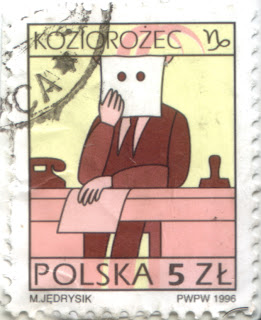Haackula (liner notes)
 With his wildest aspirations realised in the major label release of Electric Lucifer (CBS, 1969; reissued on Omni 110), the future blazed bright with promise for Bruce Haack. But his elation was shortly eclipsed by a brutal reality: the incomprehension and indifference of the listening public and the US recording industry. The Electric Lucifer was to be Haack's solitary release on a major label. Within 2 decades he was dead, mourned only by a small group of devoted friends.
With his wildest aspirations realised in the major label release of Electric Lucifer (CBS, 1969; reissued on Omni 110), the future blazed bright with promise for Bruce Haack. But his elation was shortly eclipsed by a brutal reality: the incomprehension and indifference of the listening public and the US recording industry. The Electric Lucifer was to be Haack's solitary release on a major label. Within 2 decades he was dead, mourned only by a small group of devoted friends.Throughout the intervening years he never ceased from inventing new instruments and recording music. Madison Avenue had offered him work, but after 1972 he never accepted another advertising commission. When his friend and collaborator, Ted Pandel, took up a teaching position in the rural Pennsylvania town of West Chester, Haack relocated from New York to join him. His creative partnership with Esther Nelson fell apart, but she continued to release his music - a record a year until 1976. With Pandel's support, his bohemian lifestyle took a turn for the wholesome, and when Pandel bought a house in 1976, Haack established his home studio in an upstairs bedroom. Haack struggled against the most profound unhappiness: frustration and disappointment had followed him South. Dispirited by the institutional apathy of the music industry, it was the love and kindness of his friends, and the solace of his music and inventing, that sustained him.
There are multiple revelations contained on this disc, which essentially documents the "lost years" of Haack's career - a 5 year hiatus in his discography between the 1976 release of Ebenezer Electric, and his final 2 LPs, Bite and Zoot Zoot Zoot, Here Comes Santa in his New Space Suit (both 1981). The 3 recordings on this disc speak to the breadth of the always prolific Haack's activities across that period...
(etc)
... a "true story". Because this is the first-time-ever commercial release of all this music, Omni bossman Dave Thrussell mocked up some covers, & emailed the Jpegs at his crew of friends & fellow-travellers. The vote was split, so as a decider, Dave held a seance, summoned "Bruce Haack", and the ouija board picked out this one.
(Just for the record: I was & am in agreement w/ the ethereal Haack on this)
Available now from the Omni Recording Corporation
Labels: Bruce Haack, liner notes, Moog Masterpieces


<< Home